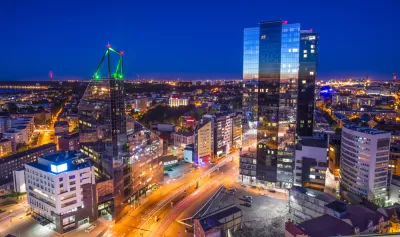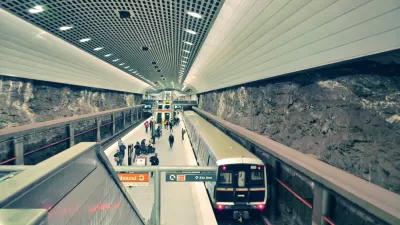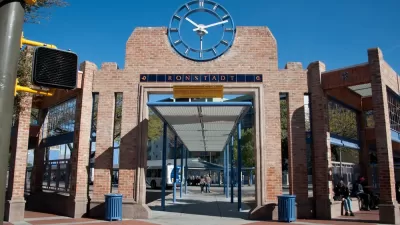How making public transportation cost-free has—and hasn't—benefited Estonia's capital city.

In 2013, a referendum in Tallinn—the capital of Estonia—made public transportation free for residents in 2013. Now, The Guardian revisits the city to see the benefits of the program, and where it has failed to make an impact.
Perhaps surprisingly, the free transit policy has generated the city €20m in revenues annually. That’s evidently because it has encouraged thousands of people to register as residents, allowing the city to capture some of their income tax.
The policy has enjoyed a 90-percent approval rating among residents. The Guardian reports that vehicles are clean and not overcrowded, and that there seems to be a culture of ridership and accommodation for non-drivers.
But there’s "mixed evidence" about whether making transit free has improved mobility or employment opportunities for low-income residents.
It’s also not clear that it has achieved climate benefits: While more people are choosing transit over car travel, "the average length of a car journey had gone up by 31%, which meant there were more, not fewer, cars on the road." Promoting cycling and imposing fees or taxes around driving might do more to reduce driving, researchers suggested.
FULL STORY: The Tallinn experiment: what happens when a city makes public transport free?

Planetizen Federal Action Tracker
A weekly monitor of how Trump’s orders and actions are impacting planners and planning in America.

Maui's Vacation Rental Debate Turns Ugly
Verbal attacks, misinformation campaigns and fistfights plague a high-stakes debate to convert thousands of vacation rentals into long-term housing.

Restaurant Patios Were a Pandemic Win — Why Were They so Hard to Keep?
Social distancing requirements and changes in travel patterns prompted cities to pilot new uses for street and sidewalk space. Then it got complicated.

In California Battle of Housing vs. Environment, Housing Just Won
A new state law significantly limits the power of CEQA, an environmental review law that served as a powerful tool for blocking new development.

Boulder Eliminates Parking Minimums Citywide
Officials estimate the cost of building a single underground parking space at up to $100,000.

Orange County, Florida Adopts Largest US “Sprawl Repair” Code
The ‘Orange Code’ seeks to rectify decades of sprawl-inducing, car-oriented development.
Urban Design for Planners 1: Software Tools
This six-course series explores essential urban design concepts using open source software and equips planners with the tools they need to participate fully in the urban design process.
Planning for Universal Design
Learn the tools for implementing Universal Design in planning regulations.
Heyer Gruel & Associates PA
JM Goldson LLC
Custer County Colorado
City of Camden Redevelopment Agency
City of Astoria
Transportation Research & Education Center (TREC) at Portland State University
Jefferson Parish Government
Camden Redevelopment Agency
City of Claremont





























